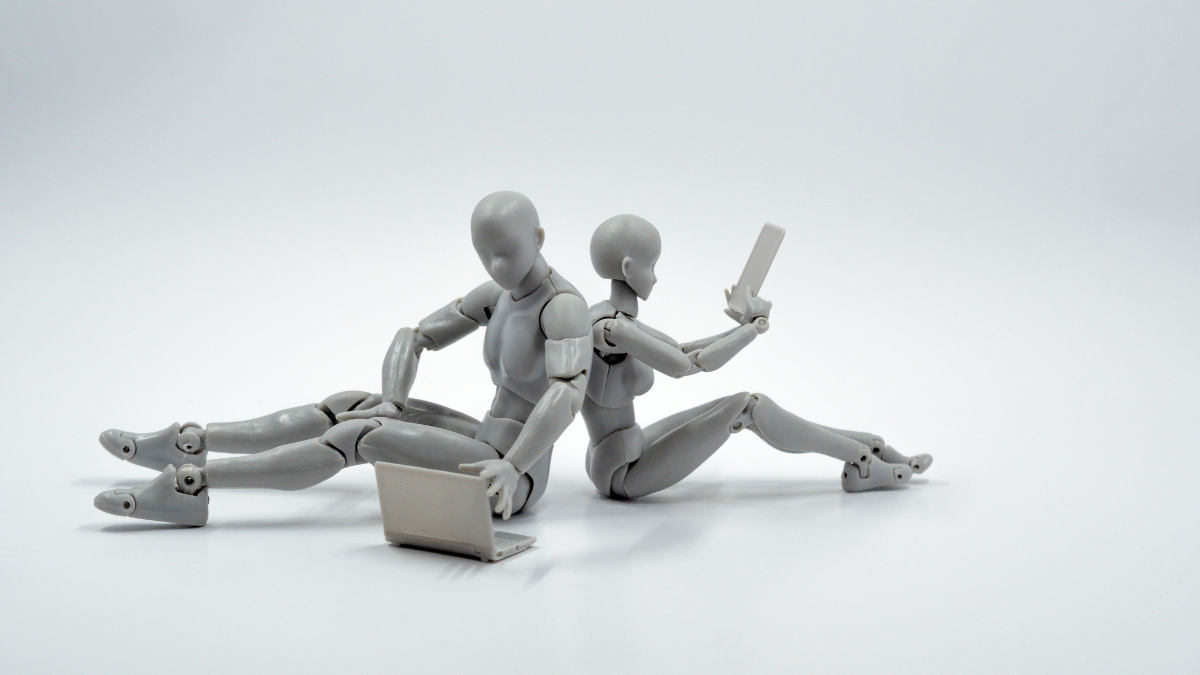

Humanity Isn’t a Problem to Solve: Technology Needs a Telos
The upside-down worldview of tech design.
09/21/23
John Stonestreet Shane Morris

Pixar’s Wall-E has proven to be among the most profound and prophetic films of the last 20 years. After hopelessly polluting the Earth and leaving an army of robots to clean up the planet, humans now live aboard a giant ship built by a company that promises to take care of all its passengers’ needs. Thus, humans are left with nothing to do but amuse themselves and eat a lot.
Many Christians wrote off the Pixar classic because of its hyper-environmentalist message. However, the film’s commentary on human exceptionalism and vocation, specifically the inability of our machines to do our most important work for us, was spot-on. In the world of Wall-E, human beings have a purpose, or a telos that cannot be reduced to maximizing comfort, safety, and convenience.
In the biblical account of reality, humans exist to glorify and love God, and to serve as His special representatives and co-rulers in creation. Human inventions should help towards achieving those ends, extending our abilities, and mitigating the effects of the Fall. Wanting to replace ourselves with our devices assumes that humanity is the central problem of the world that needs to be solved.
Recently in First Things, Matthew Crawford argued that an anti-human worldview like the one parodied in Wall-E now dominates our tech and governing classes. Those who are behind everything from smartphone apps to pandemic policy share a basic belief that human beings are inferior to machines. We are, as he puts it, “stupid,” “obsolete,” “fragile,” and “hateful.”
Crawford opens his essay with an example of a driverless car created by Google that froze at a four-way stop. Apparently, the drivers around the car didn’t behave as it had been programmed to expect. However, rather than admit the limits of the car’s “artificial intelligence,” one Google engineer remarked that what he’d learned from the incident is that humans need to be “less idiotic.” The premise is that humans are not the crown of creation but problems to be solved.
Of course, it is quite possible that, once they’ve worked out all the bugs, driverless cars will lead to less accidents and road deaths. However, one of the bugs to be worked out are the programmers who hate humans, which makes the point of this essay ring true. So much of our high-tech culture, from the social media algorithms that tell us what we want to the transhumanist fantasies about uploading our consciousness to computers, assumes that humanity is an obstacle to be overcome.
Much of our public life also assumes the basic idiocy and inadequacy of humans: take health officials more concerned with controlling people than limiting the spread of a virus or legislation quashing parental rights in order to “affirm” gender-confused minors.
C.S. Lewis saw this impulse decades ago and recognized how it would grant growing power to certain people over and above others. In his masterpiece The Abolition of Man, Lewis warned of those he called “conditioners,” who considered themselves above such common human frailties. Of course, as Lewis pointed out, the conditioners are also human, but in denial that they too are vulnerable to the same frailties as everyone else. Their danger lies in the fact that they are oblivious about their frailties, especially their moral frailties.
It is good that humans have bodies that limit us to one location and the need for food, sleep, and friendship. These limits are part of our design. Because we are designed, we must be guided by values and not merely algorithms. It is good that we take time to learn, to appreciate beauty, to feel wonder, and to have burning questions about what is behind all that we see. God made us this way, so that, eventually, our seeking would lead back to Him. Though He intends to redeem us from the ravages of sin, He never intends to optimize us into efficient machines. Apparently, He considers being human as something “good,” even “very good.” So much so, in fact, He took on flesh Himself.
Wall-E got it (mostly) right. Technology is good but needs a telos—a purpose for existing. That purpose cannot be to replace, transcend, or circumvent God’s good design for human beings.
In short, technology and public policy should be human-shaped, not the other way around.
This Breakpoint was co-authored by Shane Morris. For more resources to live like a Christian in this cultural moment, go to breakpoint.org.
Have a Follow-up Question?
Up
Next

Related Content

© Copyright 2020, All Rights Reserved.













